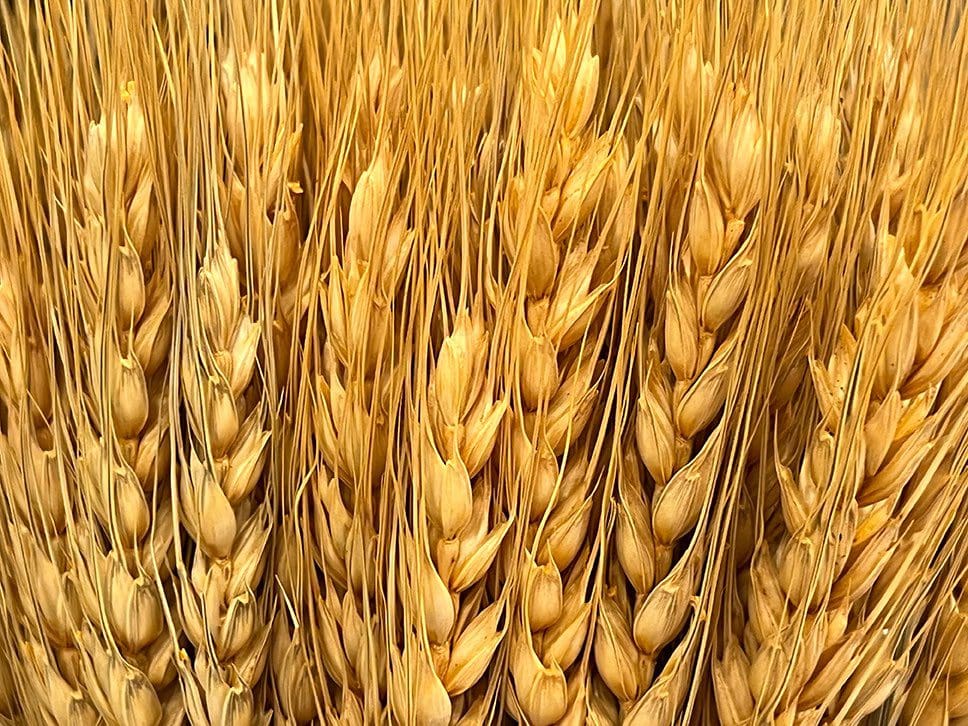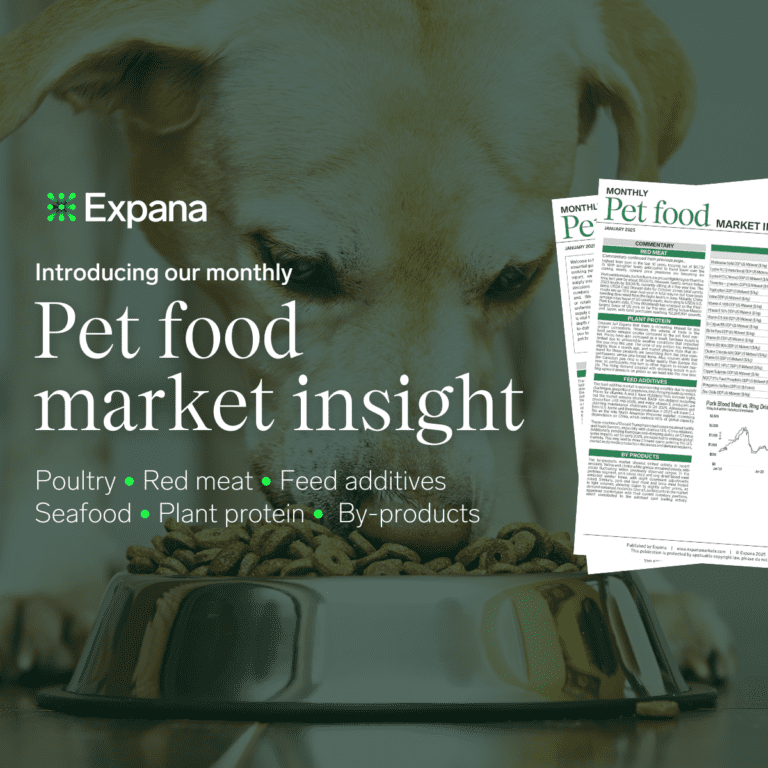Severe flooding in Central Europe threatens corn harvest
The Euronext Paris corn futures DEC-24 contract price settled at €202/mt, down 0.37% week-on-week (w-o-w) at yesterday’s close, Sep.18, 2024. Market players have reported to Expana that Central Europe is experiencing significant flooding, which severely impacts unharvested crops and delays winter grain planting, as the wet conditions make it impossible for machinery to operate in the muddy fields.
In Poland, the weekend flooding caused major damage, particularly in the Lower Silesian and Opole regions. Thousands of hectares of farmland were submerged, devastating this year’s harvest, with corn and rapeseed crops hit hardest. While some progress had been made before the heavy rains, much of the corn remained unharvested. According to Strategie Grains, Lower Silesia and Opole are key agricultural areas, accounting for roughly 8% and 3% of the national corn acreage, respectively, out of 1,110 thousand hectares. Farmers are now facing substantial crop losses, with some needing to replant entirely. An Expana contact explained: “The Klodzko Valley was one of the hardest-hit areas, with villages cut off after a dam collapse. Things are stabilizing now, but there are still worries about future flood risks. Farmers are working together to save their farms, but the long-term impact will be severe. We’re looking at shortages in seeds, fertilizers, and feed. Some farms may take years to recover. It’s still too early to estimate production losses or the negative impact on grain quality.” Another source added: “I’ve heard that this will affect the corn harvest. Traders are talking about a possible 10% decrease, maybe more. It’s also going to impact the sowing of winter crops, and there’s a high chance that planted acreage will shrink.”
In Romania, the northeast has been particularly affected by the storm, with approximately 20% of the region’s agricultural area planted with corn. It remains difficult to accurately assess the losses in crops yet to be harvested. An Expana source commented: “I agree, the northeast was hit hard. The flooding near Galati is also quite serious. It’s tough to estimate the damage for now, but I don’t think this year’s corn crop will suffer too much. However, the newly planted rapeseed has been badly affected. The only real downside I see is the delay in corn harvesting—we’re about 30-40% complete at the moment.”
In Austria, Strategie Grains expects some impact on corn and soybean production, particularly in Lower Austria, which accounts for 30%-35% of the country’s total corn and soybean acreage. Nationally, corn acreage is estimated at 210,000 hectares, while soybean acreage is projected at 90,000 hectares for 2024.
COFCO is constructing a $710 mln grain and oil processing hub in Dalian
COFCO is constructing a new grain and oil processing hub in Dongbei, Northeast China for an estimated CNY 5 billion (approximately USD 710 million). Located in Beiliang Port, Dalian, this project will primarily produce feed protein, oil products, soybean meal, and small to medium-sized packaged oils, says the Liaoning regional government.
The project will be constructed in two phases. Phase 1 will establish a processing capacity of 1.5 million tonnes/year of feed protein, 300,000 tonnes/ year of refining capacity, a 240,000 tonnes silo, a 52,000 tonnes oil tank, and other supporting facilities, for CNY 2.93 billion (approximately USD 416 million). Phase 1 is expected to be completed by the end of 2025. Phase 2 will include an additional 1.5 million tonnes/year of feed protein processing capacity and supporting facilities, with an investment of CNY 2 billion (approximately USD 284 million). Upon full operation, the project is expected to generate an annual revenue of CNY 15 billion (approximately USD 2.1 billion).
“This project will not only enhance COFCO Oils’ market competitiveness but also contribute to the economic growth of Dalian and its surrounding regions,” said the company.
ADM to acquire non-GM soy crush facility in Hungary
ADM has announced an agreement to acquire Vandamme Hungaria Kft and its related entities, who operate a non-GM soybean crush and extraction facility in Komárom, northern Hungary. ADM said the move aims to expand non-GM capabilities in Hungary and to meet the growing demand for non-GM food and feed in Europe, where 60% of consumers prefer non-GM products. ADM currently operates non-GM crush facilities in Becej, Serbia as well as in Straubing and Mainz, Germany.
The Hungarian facility processes soybeans and corn germs into meals and oils for customers in Europe and the Middle East. It has a daily capacity of 700 tonnes and generated revenues of approximately €114 million in 2023. ADM expects to complete the transaction in the coming months.
Russia’s sole feed-grade methionine manufacturer Volzhsky Orgsynthese for sale
Volzhsky Orgsynthese, Russia’s only feed-grade methionine manufacturer, is expected to be sold to a private investor during a competitive bidding procedure, the Russian government revealed. The starting price for Volzhsky Orgsynthese, which includes a methionine plant with a capacity of 25,000-26,000 tonnes/year, is set at Rub 20.9 billion (approximately $230 million). The auction winner will be required to conduct a comprehensive modernization of the plant’s production capacities, including a 20,000 tonne/year expansion of the existing potassium butyl xanthate production. Furthermore, the facility is set to introduce the production of several new industrial chemicals, such as thiuram, tetrabenzylthiuram disulfide, and sodium xanthates. However, Volzhsky Orgsynthese’s development plan does not include concrete changes to methionine production at this stage.
In 2022, Andrei Freiman, head of the methionine sales department at Volzhsky Orgsynthese, revealed that the company had suspended exports of methionine due to Western sanctions against Russia, keeping deliveries of only small product quantities to customers in Belarus and Kazakhstan. The restrictions have not discouraged the company from executing its development plans, which, according to Freiman at that time, involved a “significant increase” in feed-grade methionine production. In 2023, control over the company’s assets was seized by the Russian authorities. Following the move, former owner Alexander Sobolevsky warned about the dire consequences it would entail for Volzhsky Orgsynthese’s operations.
Volzhsky Orgsynthese may eventually seek to boost methionine production to 57,000 tonnes/year, a source in the feed industry said. However, the prospects of expanding methionine capacities at this point look vague, a second source familiar with the matter disclosed. Firstly, the outcome of the competitive bidding procedure seems uncertain since the starting price appears too high for Volzhsky Orgsynthese, the second source said. Furthermore, given the circumstances, the source emphasized that investments in methionine production are not an issue for the foreseeable future.
Nestlé Purina invests €170 mln in UK site upgrade
Nestlé has announced an investment of more than £150 million (approximately €170 million) to upgrade production at its Nestlé Purina PetCare factory in Wisbech, UK. “Works are already underway with completion expected in early 2025,” Nestlé said.
The Wisbech facility produces pet food brands including Felix, Gourmet and Winalot. The investment has also led to the recruitment of 40 new staff who are experienced with the new technology being introduced as part of the upgrades.
Expana launches global vitamin B12 and choline chloride price assessments
Expana is pleased to announce the launch of comprehensive global coverage of the feed-grade vitamin B12 and choline chloride markets. This new coverage will span Asia, Europe, North America, and South America, with reports published weekly on Tuesdays (choline chloride) or Thursdays (vitamin B12). This initiative follows the successful launch of China feed phosphate export prices earlier this year.
“Based on an evaluation of vitamin and mineral volumes and market values, we’ve identified vitamin B12 and choline chloride as key products for developing in-depth coverage due to their high volumes, significant market value, and indispensable role in animal nutrition,” said Sam Weatherlake, Managing Editor, feed additives. “By covering these nutrients, we can help feed compounders better predict costs and ensure they get global insight on the most impactful nutrients.”
“Trace minerals and vitamins form the foundational building blocks for premixers, encapsulating the essence of a premix company’s role in blending these nutrients adeptly,” said Heather Doyle, Senior Market Reporter, in North America. “Given the growing trend for compound feed producers to integrate premix production capacities and develop their unique blends, Expana’s reporting on these feed additives becomes increasingly crucial.”
Podcast: “Agri-Food for Thought” Episode 13 – Q4 feed additive outlook, deforestation regulation, and Storm Boris
Expana presents Agri-Food for Thought, the podcast series for agriculture and food professionals. Agri-Food for Thought covers the latest news in food and agriculture. Listen now as Simon examines seasonal shifts underway in the food and ag space, with special guest Lydia Ma, Market Reporter Feed Additives – Asia, Expana, giving a Q4 2024 outlook for her markets.
Want to dig into further insights? Discover more on our insights page.



